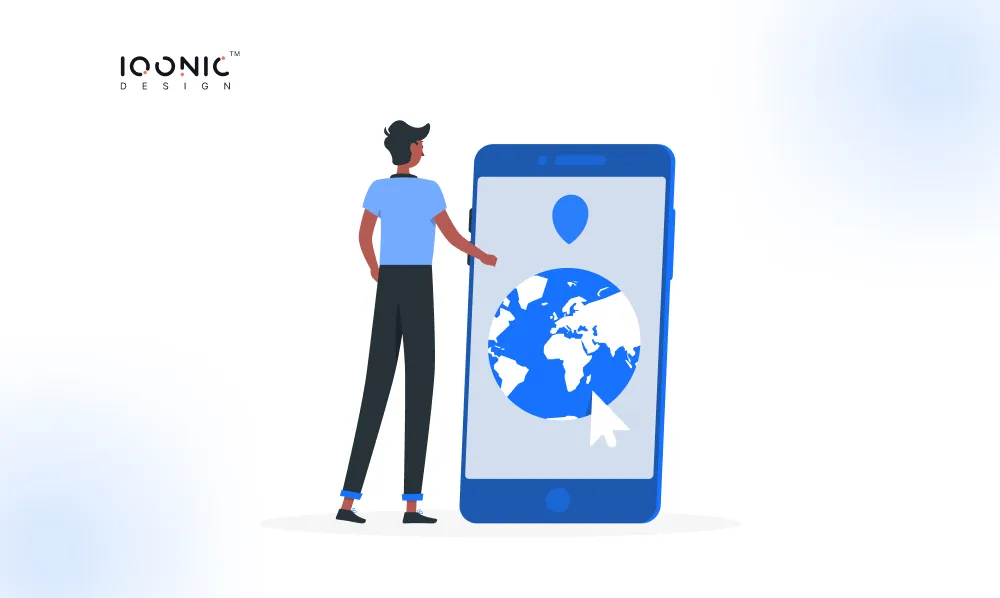
How are Mobile Apps Transforming Businesses Today?
Mobile apps have become indispensable in today’s business landscape, revolutionizing how companies operate and interact with their customers. Here’s why they are paramount:
1. Ubiquitous Presence:
Mobile apps have billions of smartphone users worldwide. They provide businesses with a direct channel to reach a vast audience.
2. Enhanced Customer Engagement:
They enable businesses to engage with customers like never before, fostering a stronger connection and boosting loyalty.
3. Convenience and Accessibility:
Mobile apps offer unparalleled convenience to users. Customers can access products, services, and information with just a few taps on their devices.
4. Personalization:
5. Analytics and Data:
Mobile apps generate valuable data, giving businesses insights into user behavior and preferences. This data-driven approach informs strategic decisions.
The Evolution of Mobile Apps
The journey of mobile apps from their inception to their current transformative role in businesses is remarkable:
1. Early Days:
Mobile apps started as basic utilities like calculators and calendars, primarily for personal use. They were limited in functionality and availability.
2. App Store Revolution:
The launch of app stores, notably Apple’s App Store and Google Play, democratized app distribution. This opened doors for developers to create diverse apps.
3. Business Integration:
As smartphones gained popularity, businesses recognized the potential of mobile apps. They began to develop apps for customer engagement, marketing, and sales.
4. From Convenience to Necessity:
Mobile apps quickly evolved into powerful business tools. They streamline operations, improve customer service, and drive revenue, making them necessary for modern businesses.
5. Technological Advancements:
Advances in technology, such as cloud computing and mobile devices’ capabilities, have empowered developers to create feature-rich and sophisticated mobile apps.
This evolution reflects how mobile apps have transcended their initial limitations to become indispensable business tools, driving growth and innovation in the digital era.
Key Benefits of Mobile Apps for Businesses
Mobile apps provide businesses with many benefits that contribute to their success in the digital age. Here’s a breakdown of some of these advantages:
Enhanced Customer Engagement:
1. Direct Communication:
Mobile apps establish a direct and instant line of communication between businesses and customers. Push notifications enable timely updates and promotions.
2. Personalization:
Convenience and Accessibility:
1. 24/7 Accessibility:
Apps are accessible 24/7, offering customers the convenience of accessing products, services, and information at their fingertips anytime and anywhere.
2. User-Friendly Interface:
Their user-friendly interfaces make it easy for customers to navigate and find what they need quickly, enhancing the overall user experience.
Improved Brand Loyalty:
1. Consistency:
Mobile apps provide a consistent brand experience. Customers appreciate this consistency and tend to remain loyal to businesses that offer it.
2. Rewards and Loyalty Programs:
Apps often include loyalty programs and tips systems, encouraging repeat business and fostering brand loyalty.
Mobile Commerce (MCommerce)
Mobile commerce, commonly known as MCommerce, is a game-changer for businesses. It leverages the power of mobile apps to drive sales and revenue:
Driving Sales and Revenue:
1. Instant Purchases:
Mobile apps facilitate one-click purchases, reducing friction in the buying process. Customers can buy products or services swiftly, leading to increased sales.
2. GeoTargeting:
Apps can use geolocation to send location-specific offers, driving foot traffic to physical stores and boosting sales.
Rise of InApp Purchases and Mobile Payment Options:
1. InApp Purchases:
2. Mobile Payment Options:
Mobile apps enable various payment options, including mobile wallets and contactless payments, making transactions quick and secure.
MCommerce is reshaping how businesses conduct transactions and interact with customers, making it a vital component of their success in the digital marketplace.
Improved Customer Service
Mobile apps revolutionize customer service by offering enhanced support options and convenience:
1. RealTime Communication:
Mobile apps enable real-time communication between customers and support teams, reducing response times and enhancing satisfaction.
2. Chat Support:
In-app chat allows customers to instantly ask questions and resolve issues, improving the overall experience.
3. FAQs and Knowledge Bases:
Mobile apps often feature FAQs and knowledge bases that provide quick answers to common queries, reducing the need for customer support interactions
4. Feedback Mechanisms:
Apps can include feedback forms, allowing customers to share their opinions and concerns, which businesses can use for continuous improvement.
Data Driven Insights
Mobile apps are treasure troves of data that can shape business strategies:
1. Valuable Customer Data:
Apps collect data on user behavior, preferences, and demographics, offering businesses a deeper understanding of their audience.
2. Importance of Data Analytics:
Data analytics tools can analyze this information to identify trends, customer pain points, and growth opportunities.
3. Informed DecisionMaking:
Armed with data-driven insights, businesses can make informed decisions, refine their products/services, and target their marketing efforts effectively.
Challenges and Considerations
When integrating mobile apps into business strategies, it’s essential to be aware of potential challenges and how to address them:
Challenges:
1. App Development Costs:
Developing and maintaining a mobile app can be expensive, especially for small businesses.
2. Competition:
The app marketplace is highly competitive, making it challenging to stand out.
Strategies for Overcoming Challenges:
1. Budget Planning:
Carefully plan your Mobile app development budget, considering long-term maintenance costs.
2. Market Research:
Conduct thorough market research to identify gaps and niches in your industry that your app can address uniquely.
3. UserCentric Design:
Prioritize user experience and design to create an app that users find valuable and easy to use.
4. Continuous Improvement:
Regularly update and enhance your app to keep it competitive and meet evolving user needs.
5. Marketing and Promotion:
Invest in marketing to increase app visibility and attract users.
By understanding and proactively addressing these challenges, businesses can harness the full potential of mobile apps for their growth.
Future Trends in Mobile App Development
The future of mobile app development is exciting, with emerging technologies poised to redefine user experiences:
1. AR and VR Integration:
Apps will increasingly incorporate Augmented Reality (AR) and Virtual Reality (VR) for immersive experiences, from gaming to virtual shopping.
2. AIPowered Apps:
3. Blockchain Security:
Blockchain technology will improve app security and facilitate secure transactions and data management.
Conclusion
Mobile apps have transformed the business landscape:
- They’ve become indispensable customer engagement, service, and loyalty tools.
- MCommerce has reshaped sales and revenue channels.
- Datadriven insights inform strategic decisions.
- Challenges like development costs can be overcome with careful planning.
- The future holds even more promise with AR, VR, and AI.
In this digital age, businesses should embrace mobile app development to thrive in a rapidly evolving landscape. Investing in mobile apps is an investment in a brighter, more connected future.
Discover Success with Iqonic Design Reviews!
We are your trusted partners for cost-effective Flutter app development , backed by Trustpilot and Envato. Our expertise spans every aspect of mobile app development, and we cater to diverse clients:
Startups:
We specialize in turning your innovative ideas into engaging and user-centric mobile apps.
App Development Agencies:
Partner with us to supercharge your Flutter app development capabilities within a reasonable budget.
SMEs:
Our strengths include:
Stunning UI/UX Design
Our designs combine aesthetics with functionality, ensuring user satisfaction.
Flutter App Development:
We build visually stunning, high-performing, and scalable cross-platform apps.
Powerful API and Backend Development:
Trust us to create a robust app backbone.
Compelling Landing Pages:
We craft landing pages that effectively communicate your app’s unique value.
Cloud Hosting and App Uploads:
Leave the technicalities to us; we handle cloud hosting and app uploads for cross-platform accessibility.
Ongoing Support & Updates:
Count on us to keep your mobile app up-to-date with the latest technology.
Join us on this journey to transform your app vision into a remarkable reality with Iqonic Design Reviews!






